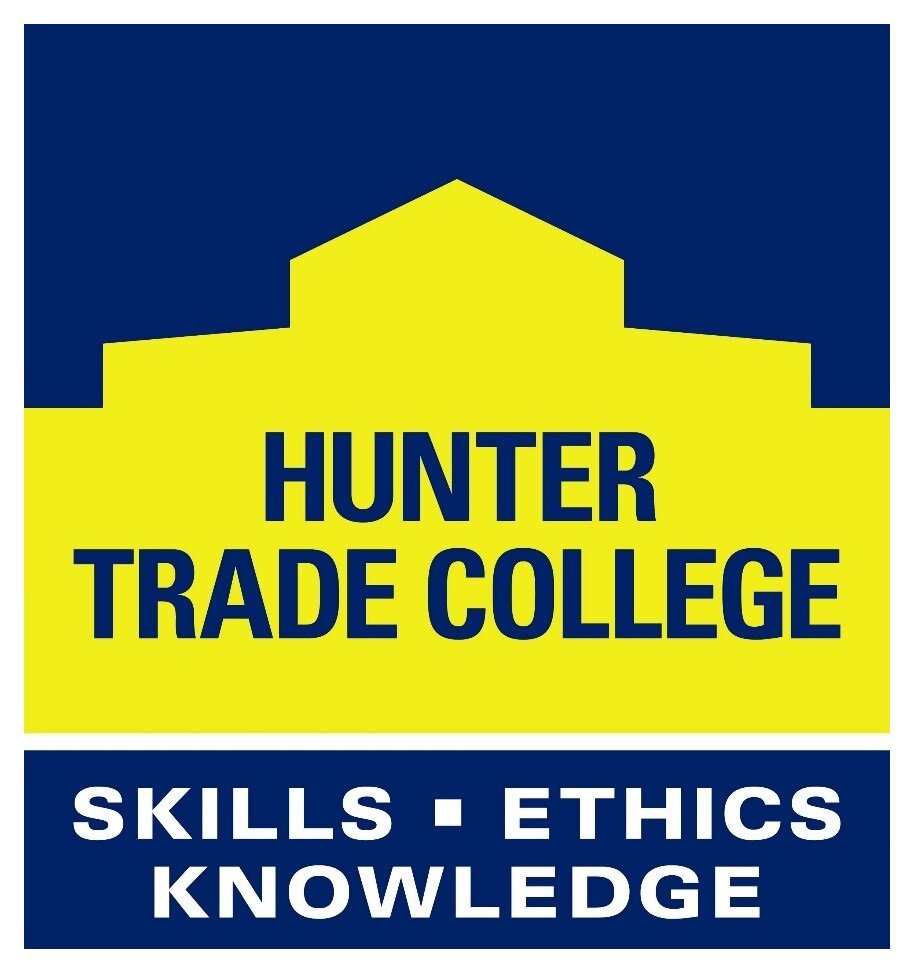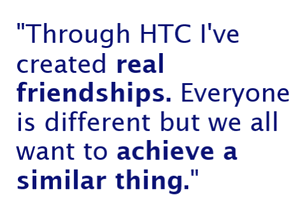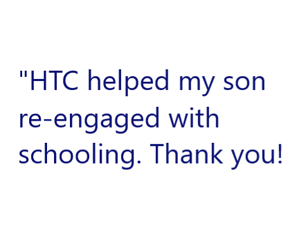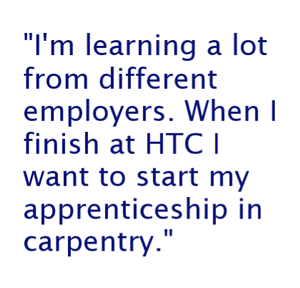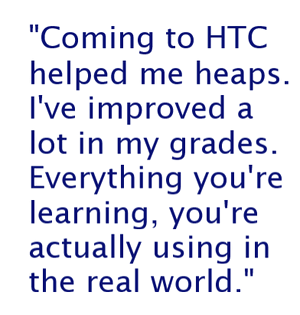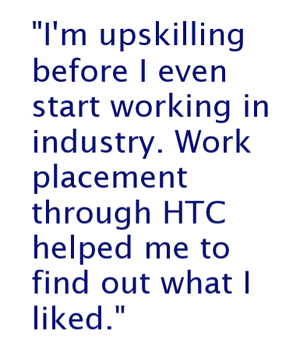The College Work Placement program provides students with access to hands on experience, which is pivotal in ensuring a young person is making an informed decision about the career path they wish to pursue and giving them a competitive advantage. The primary focus for ‘Work Placement’ is not to get jobs, but to provide opportunity to develop employability and practical skills.
This is an essential and important part of the curriculum.
Staff Contact Details
Team Leader
Ms Tanya Hall
[email protected]
Work Placement Officers
Mr Aaron Ycas
(Carpentry, Engineering & Plumbing)
[email protected]
Ms Karlee Smith
(Electrical & Automotive)
[email protected]
Phone: 4932 2400
Hours: Monday - Friday 7.30am-3.30pm
The College has a responsibility to:
• ensure that the placements are appropriate for the student’s skill level and trade course.
• negotiate the work-based training program or the activities a student will undertake when they attend the workplace.
• work with the host employer to identify and ensure compliance with safety and other mandatory requirements, including child protection.
• monitor the progress and skills development during a work placement.
We will seek School-based Apprenticeship and School-based Traineeship (SBAT) opportunities for students during their work placement. If students take up a school-based apprenticeship or traineeship, their employer will pay at the award rate training wages for the industry. Students do not receive payment for Work Placements.
All work placements are monitored and a comprehensive report is completed with the assistance of the employer. The reports are a valuable assessment tool to gauge the progress of each student and identify areas for improvement.
How do students obtain a work placement?
Most business and community organisations, large and small, can participate in experiential workplace learning. Our Work Placement Officers work closely with more than 300 Hunter Valley employers/businesses to source work placements for students.
Our Work Placement Officers will discuss with students the details of each work placement and will require an annual approval from a parent/carer before the student can participate in the Work Placement Program. Work placements are usually 20-day blocks with each employer.
Students must return their completed work placement timesheets each week to the College office. All paperwork must be complete before the next work placement can commence.
What does the College do to help students prepare for work placement?
tudents must meet the following criteria before commencing work placement:
Work Ready Program: Students must be assessed as ‘work ready’ by their trade teacher before they can commence work placement. To achieve work readiness, students must complete:
WHS General Induction course
First Aid Certificate
Take 5 course
Equal Employment Opportunity, anti-harassment and anti-bullying training
Basic hand and power tools safe operating procedures and safety test
Demonstrated level of commitment to undertake a work placement safely.
College Fees: To be eligible for the Work Placement program:
Fees must be up to date, or
A payment plan in place with parent/carer meeting the payments, or
An application for financial hardship relief (fee reduction) in place.
Parent Work Placement Permission Form: Parents/carers must sign the Work Placement Permission Form and return it to the administration office. Independent students may complete and sign the form themselves. The form must be submitted at the start of each College year.
Is there an age limit to participate in work placement?
NSW legislation requires students to be 14 years of age or older before engaging in Work Placement Programs. All students enrolled at the College can participate in the Work Placement Programs as negotiated with employers and subject to NSW Child Protection Legislation.
What legal protection and insurance cover do students have on work placement?
Work, health and safety legislation applies to every work site and any student or teacher engaged in an approved workplace learning program. Students are engaged in workplace learning activities as volunteers and have no claim on employers’ workers’ compensation insurance. Students must report all injuries to the College so that we can establish a record of the incident.
Student Accident Insurance:
Our Student Accident Insurance Policy covers students for personal injury during their enrolment at the College. The policy covers students 24 hours a day, seven days a week while they are enrolled at the College regardless of their activities and provides a range of benefits and payments covering injury. A copy of this insurance policy is available on request. The Student Accident Insurance Policy does not cover any physical injury for which a student has received treatment or advice in the six months before their enrolment at the College.
Combined General Liability Policy:
The Combined General Liability Policy provides indemnity for the student, the employer and the College when the student is involved in work placement activities. The policy provides protection and compensation for employers if a student damages the employer’s property.
How can parents/carers help with work placement?
There are many ways your parents/carers can help you with work placement.
Before placement begins parents/carers can encourage students to:
discuss the aims and objectives of the program
find out about opportunities for work placements in your local area
investigate any family/personal contacts who may be able to assist with a work placement
When students obtain a placement parents/carers could help to organise:
transport
starting and finishing times – remember that you are expected to work the normal hours of the position
first day arrangements (time, place, contact person meal facilities)
College uniform and personal protective equipment, which students must wear to work placement
During placement parents/carers can assist by:
discussing each day’s activities
how the workplace operates
Workplace Health and Safety
employees’ responsibilities and rights
contacting the College immediately if there are any difficulties, e.g. accident, injury, industrial dispute, harassment
After placement parents/carers can encourage by:
discussing the employer’s work placement report
reminding students to return the completed work placement timesheets to the College office
reviewing and discussing future employment, education, training and career options
What workplace supervision does the College provide?
The College has a responsibility for student safety and welfare in all educational activities, commonly referred to as “duty of care”. The Work Placement Program is no exception. Given the nature of work placement, supervision of students by the College cannot be as detailed, close and constant as on-site College activities. Therefore, the employer assumes some of the responsibility. We expect that employers will meet their responsibilities as set out in the Work Health and Safety Act 2011 and Work Health and Safety Regulation 2017.
Our Work Placement Officers will monitor students whilst they are on work placement. Monitoring may include phone calls to the employer or a workplace visit. Where a work placement involves living away from home, special requirements apply. The College must approve the accommodation and after-hours supervision to meet insurance and duty of care responsibilities. The College may not approve of living away from home arrangements if they do not meet the Hunter Trade College Work Placement Policy.
Please note that deliberate misconduct during work placement will result in the immediate cancellation of a work placement and could negatively impact a student’s HSC and continued enrolment at the College.
How does the College protect students from abuse during work placement?
We take measures to ensure that, while engaging in College-approved activities, students are protected from all forms of abuse, including sexual, physical and emotional abuse and neglect. Before commencing a work placement, employers are required to ensure that all staff are aware of the special responsibilities associated with working with students and that any conduct of a sexual nature with a student is not permitted and may result in the College taking action under Child Protection Legislation. Students are encouraged to report any concerns to Work Placement Officers.
What are the operating times for work placement?
Work placement normally occurs during school term weeks.
A student’s work placement hours will replicate the normal daily work hours of the host employer.
Work placement may extend into the weekend if required, but only if weekend work is an essential requirement of the industry.
Work placements may occur during College school holiday periods. Our Work Placement Officers will liaise with students and parents/carers if you require a school holiday placement.
What are the travel arrangements for work placement?
All travel to work placement is at a student’s own expense. Students must organise their travel arrangements, with the assistance of parents/carers and the College.
Weekly concession fares are available for travel on government trains, buses and ferries.
Concession fares may also be available on private buses.
The College will issue a Senior Secondary Student Concession Card for subsidized transport.
Are students paid during work placement?
Students do not receive payment for work placement. Payment from a host employer will void work placement insurance cover. Host employers paying students have a legal responsibility to provide workers compensation insurance.
Are there forms to complete for work placement?
We will provide a Work Placement Permission to parents/carers each year. Please make sure you return the completed form to the administration office. We must receive the completed form before we can arrange a placement, to ensure proper insurance and other protections are in place.
We will complete a Student Placement Agreement form for each work placement undertaken, and we require students, the employer and a College staff member to sign the agreement. Students and employers will receive a copy of the agreement. The Student Placement Agreement includes a parent/carer name and phone number for emergency contact.
If students have a medical condition, learning difficulties or disability, we may require additional forms before work placement commences to ensure their safety and to meet insurance requirements.
Do students need to fill in timesheets for work placement?
Students must submit timesheets each week to the College office, signed by the supervisor. If students do not submit a timesheet each week, they may not meet the requirements of both VET courses and your IBL course. The College may withdraw students from the IBL course and they may need to complete other study units before they can achieve your HSC.
Are there any excluded activities when on work placement?
College work placement students are not permitted to engage in high-risk activities including:
using prescribed equipment or other dangerous machinery unless the employer gives appropriate supervision and training.
driving Host Employer motor vehicles, including motorbikes and off-road vehicles.
driving any motor vehicles on to or off vehicle hoists unless they are a licenced driver (minimum Red or Green P plate driver)
activities involving guns or firearms
removal or disposal of asbestos or asbestos-containing products
activities involving service of alcohol unless the student is aged over 18
smoking and exposure to passive smoking in a confined space such as a vehicle.
‘High-Risk Construction work’ as defined in the NSW WHS Act 2011: e.g. construction work involving the use of explosives; work in and around major gas and electrical installations.
any excavation work at a depth of 1.5 metres or more and any excavation under 1 metre without direct supervision by a competent person and any excavation near utilities
working at heights, unless the student holds a safe work at heights competency and appropriate safe systems of work are in place and safety conditions met by the Host Employer in accordance with the WHS Act 2011 and WHS Regulations 2011. e.g. harness, edge protection, scaffolding
work on caissons or cofferdams (permanent or temporary structures respectively, used to enable construction work in marine environments)
work on live electrical circuits.
any use of electric, oxy-acetylene or similar welding or cutting equipment processes that does not comply with Australian Standard 1674 “Safety in Welding and Allied Processes” and is not carried out under the direct supervision of a competent person.
Please note: These exclusions do not apply to School-Based Apprentices or Trainees (SBAT). The employer determines work activities for SBATs, subject to WHS Act 2011 and WHS Regulation 2017 legislative requirements that apply to all workplaces.
